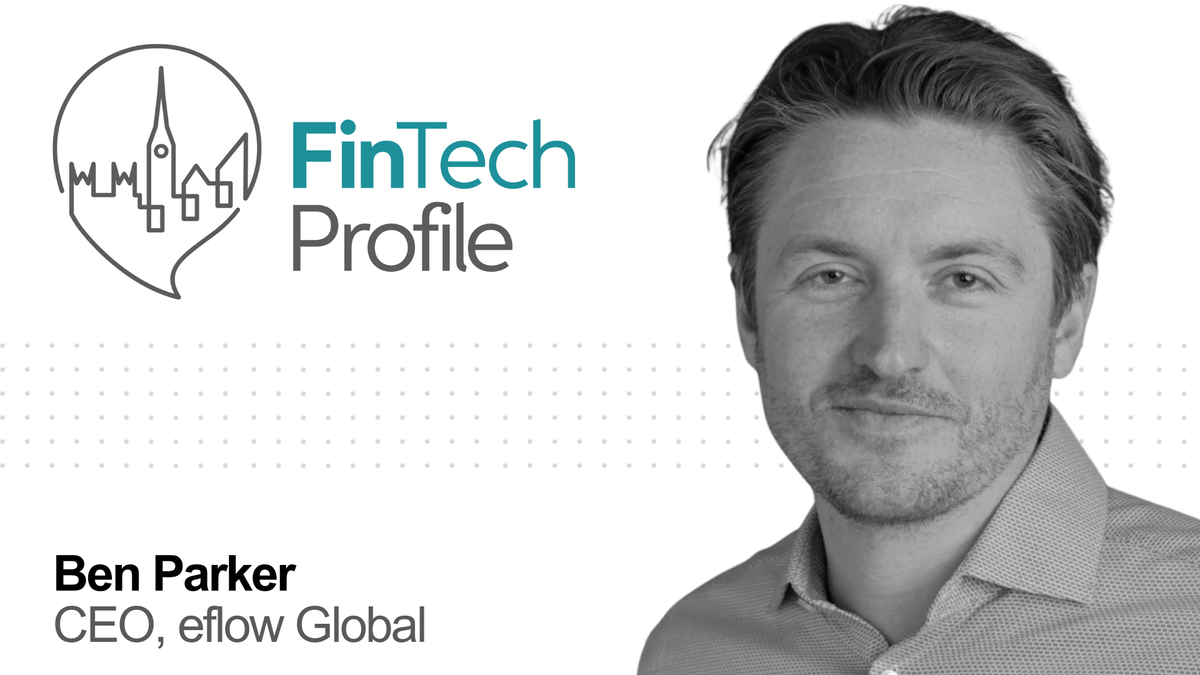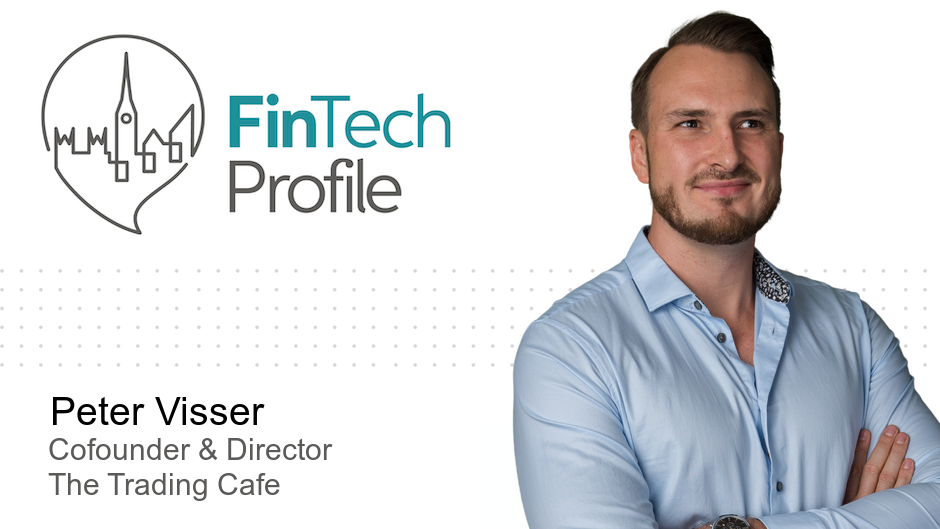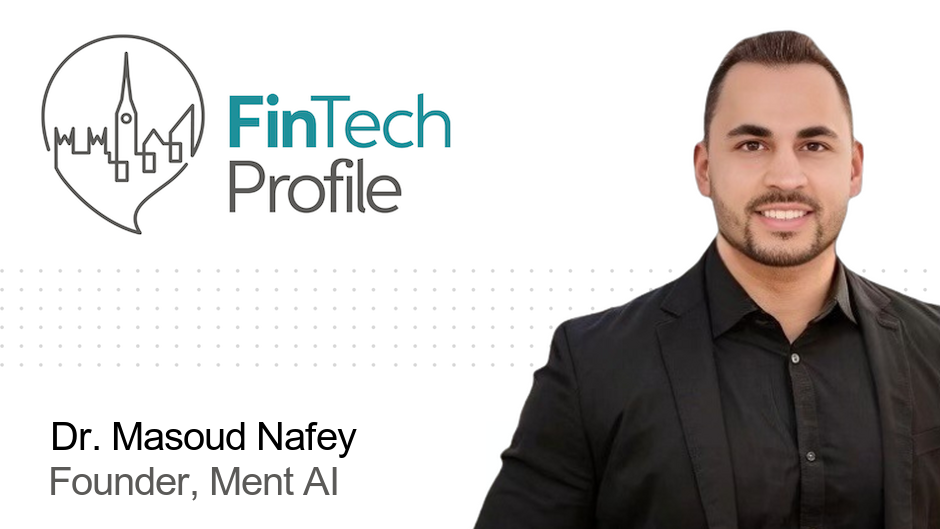Ben Parker, CEO, eFlow Global

Today we’re meeting Ben Parker, CEO of eflow Global. The company enables firms to manage their regulatory controls in a more robust, streamlined and efficient way. And if you’ve worked in financial services for any length of time, you’ll appreciate anything that makes things better is always welcomed.
Right, let’s get to it.
Over to you Ben!
Who are you and what’s your background?
Originally from Australia, I’ve called the UK home for much of the last 25 years. My academic journey began with Philosophy and Religion studies at Kings College London, followed by a transition into the world of financial services and regulatory technology.
As CEO of eflow, my role encompasses defining and spearheading our global strategy, which encompasses product development, commercial strategy, operations, and more. A recent highlight includes leading our Series A investment round, securing £7 million in funding to expand and accelerate our operations over the coming years.
What is your job title and what are your general responsibilities?
As CEO, I bear the overall responsibility for executing eflow’s strategy and realising our vision of becoming the number one partner for investment and trading compliance across the UK, EMEA, and North America.
On a day-to-day basis, I’m heavily involved in ensuring that all aspects of the business are operating as efficiently as can be, while also ensuring we’re scanning the regulatory landscape to make sure our products are evolving to meet the needs of our clients, both today and in the future.
Can you give us an overview of your business?
eflow has been supporting financial institutions to meet their regulatory obligations for more than 20 years. Through a unique combination of highly configurable, modular tools and decades of industry expertise, we enable firms to manage their regulatory controls in a more robust, streamlined, and efficient way.
Our range of regulatory solutions is built on PATH, a digital ecosystem that we’ve engineered and refined over more than two decades of research and development. It combines the speed and efficiency of an off-the-shelf software solution, with the configurability of a bespoke technology platform, creating a uniquely flexible solution for all our clients.
Tell us how you are funded?
eflow’s evolution over the past two decades has primarily been fuelled by organic growth, bolstered by the backing of individual investors during our early stages. A pivotal moment arrived in 2022 when we orchestrated a management buyout of the venture capital positions within the company, consequently shifting majority ownership to the executive team.
Building upon this momentum, 2023 marked another milestone as we successfully secured £7 million in Series A funding from Finch Capital. This infusion of capital is now being deployed to accelerate our product development strategy and expand our penetration into new international markets.
What’s the origin story? Why did you start the company? To solve what problems?
Armed with a humanities degree, I ventured into the city, eventually finding myself in the middle office of several small regional banks in the UK. It was here that I encountered a significant challenge – the manual nature of regulatory compliance within the banking sector.
Recognising the pressing need for automation in this space, despite the industry’s initial reluctance, I was inspired to explore avenues outside traditional banking frameworks. This realisation was further fuelled by an opportunity presented by my mother, who had previously developed a platform for an Australian bank in New York. Acquiring the intellectual property of this platform became our first step in the journey.
The turning point arrived in 2008, amidst the global financial crisis, when regulatory scrutiny intensified. Seizing this moment, we identified an opportunity to pioneer cloud-based solutions in an industry hesitant to embrace such innovations. Leveraging our expertise in regulatory compliance and the growing trend towards cloud services, we started on a path to redefine the landscape of regulatory technology.
Through building a digital ecosystem, we developed a scalable, adaptable platform capable of evolving with both regulatory changes and the specific needs of individual firms. This approach not only conserves resources for both eflow and our clients, but also enhances the longevity and relevance of the solutions, ensuring that we are able to keep up with the ever-changing regulatory landscape.
Who are your target customers? What’s your revenue model?
Our client base spans a wide range of financial institutions, from tier-one entities to boutique trading platforms. This mix includes brokers, fund managers, investment firms, asset managers, wealth managers, and beyond. What sets us apart is the adaptability of our technology, allowing us to cater to firms of varying types, sizes, and developmental stages.
Operating on a conventional Software as a Service (SaaS) model, our revenue structure typically comprises initial configuration fees followed by recurring monthly licensing fees. This approach ensures our solutions remain accessible and scalable for clients across the board.
If you had a magic wand, what one thing would you change in the banking and/or FinTech sector?
It’s imperative for firms to recognise that technology represents an investment rather than merely a cost. Despite notable shifts in perspectives over the past decade, it’s surprising to see that many organisations still fixate on the upfront expenses of implementing digital systems, rather than acknowledging the operational efficiencies, cost savings, and enhanced utilisation of their workforce that such investments can yield.
A significant aspect of our role involves educating the industry to adopt a more forward-thinking approach, emphasising the long-term benefits and transformative potential of embracing innovative technologies.
What is your message for the larger players in the Financial Services marketplace?
Many larger firms face the ‘Buy vs build’ dilemma and feel that they must build their own solution given the resources at their disposal. I would recommend that they don’t need to be afraid of outsourcing specialist services, such as regulatory technology, to an external vendor.
Third-party technology can be a huge enabler for larger organisations. By leveraging the expertise and resources of external vendors, firms can navigate complex regulatory landscapes more effectively, streamline operations, and accelerate innovation, ultimately fostering greater agility and competitiveness in the market.
Where do you get your Financial Services/FinTech industry news from?
Waters Technology, Finextra, and Fintech Futures are among the primary channels from which I gather industry news and updates.
These platforms consistently provide in-depth reporting on the latest trends, innovations, regulatory changes, and market dynamics shaping the financial landscape.
Can you list 3 people you rate from the FinTech and/or Financial Services sector that we should be following on LinkedIn, and why?
I don’t typically “follow” any one individual, preferring instead to gather information from a diverse range of sources. However, I do subscribe to a daily newsletter from Marcel van Oost, a specialist fintech journalist whose insights consistently offer valuable information about developments in financial technology.
What FinTech services (and/or apps) do you personally use?
I use several FinTech services, such as:
What’s the best new FinTech product or service you’ve seen recently?
Not a new product as such, but I’m consistently astounded by the massive differences in user experience between using the apps of digital banks such as Monzo and Revolut when compared to traditional banks.
Finally, let’s talk predictions. What trends do you think are going to define the next few years in the FinTech sector?
One big trend will be the influence of AI in trading. We saw how a bot used made-up insider information to make an ‘illegal’ purchase of stocks without disclosing this information, at the recent AI Safety Summit. These are real threats, not just hype, fuelled by the recognition that the regulatory surveillance methods of old are insufficient in the face of evolving market dynamics.
The good news is that AI will also deliver efficiencies and advanced capabilities for both firms and regulators, with firms turning to AI and RegTech to better monitor and combat market abuse. However, firms need a clear understanding of how these algorithms operate, as well as how more sophisticated technology will need to be deployed to protect them.
Thank you very much for taking the time to contribute Ben!
You can follow Ben on LinkedIn here: Ben Parker and find more about eflow Global at https://eflowglobal.com/.




